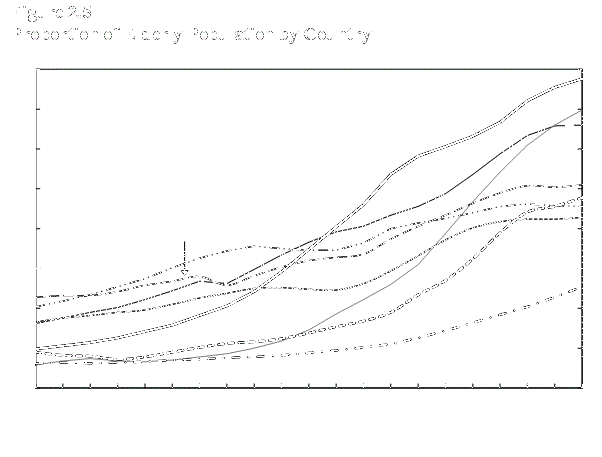Business pessimism rises in Japan Mar 31 2003
Post on: 16 Март, 2015 No Comment

TOKYO, Japan (CNN) — Big business sentiment in the world’s second-largest economy, Japan, is fading again, the latest Bank of Japan survey shows.
The heightened business pessimism comes as the Japanese stock market sinks close to a 20-year low, over worries about the war in Iraq and the deadly SARS illness that is gripping Asia.
The BOJ’s closely watched Tankan survey, released Tuesday morning, shows the big manufacturers’ diffusion index worsened to minus 10 in the March quarter, from minus 9 in December.
But there was a brighter result in the large non-manufacturing sector, where sentiment improved slightly, up from minus 16 in December to minus 14 in March.
The results were broadly in line with market expectations, which was predicting unchanged figures of minus 9 and minus 16 respectively for big manufacturers and big non-manufacturers.
The Tankan business sentiment or diffusion index measures those who report favorable business conditions against those who see unfavorable conditions.
The survey, which covers more than 8,400 manufacturing and non-manufacturing enterprises across Japan, is seen as a key forward indicator of the health of the economy.
The latest survey was conducted between February 24 and March 31, so some responses take in the start of conflict in Iraq and the outbreak of the SARS illness that has caused about 60 deaths worldwide, mostly in China and Hong Kong.
Those two external factors, along with continuing tensions on the Korean peninsula and domestic issues such as structural reform, deflation, high unemployment, slower export growth to the U.S. and the bad-loan problems faced by Japanese banks, are weighing on the Japanese economy.
Surprise surge
Toyota’s share price is up Tuesday after a sharp drop the day before.
Still, in mid-February Japan released figures showing a surprise lift in economic growth in the December quarter, boosted by a surge in exports to Asian markets, particularly China. (Full story )
The government said gross domestic product (GDP) rose 0.5 percent quarter on quarter in December, for an annualized rate of 2.0 percent. That was better than expected, but still below figures posted in the September and June quarters.
Global bank HSBC is predicting Japan’s economy will contract by 0.5 percent in 2003.
Japan’s stock market found little cheer in the latest Tankan result, with the Nikkei 225 average down 1 percent in early trade to 7889.67, near its 20-year record closing low of 7862.43 seen on March 11.
For a third year in a row, the Nikkei lost ground in the financial year that ended Monday. It ended below 8000, a drop of 28 percent from its starting point a year ago.
In early trade Tuesday, big exporter Sony is down 1.67 percent to 4120 yen. But Toyota Motor, which dropped sharply on Monday, is up about three quarters of a percent to 2655 yen.
The latest Tankan does show an improved business sentiment, however, among small manufacturers, with a reading of minus 29, compared with minus 33 in December. The overall figure for all enterprises also improved slightly, up from minus 28 to minus 26.
Release of the BOJ survey comes after data posted on Monday showed a fall in Japan’s industrial output for February. (Full story )
The Ministry of Economy, Trade and Industry said industrial output fell 1.7 percent in February from a month earlier on a seasonally adjusted basis. That was worse than economists’ median forecast of a 0.9 percent fall.
ING’s Tokyo-based chief economist Richard Jerram said in a commentary that there were mitigating factors for the lower than expected industrial production.
In particular, inventories are at 15-year lows, which is not consistent with a turning point in the economic cycle, Jerram said.
He said that if weaker demand was leading to production cutbacks, then the first place this should be evident was in rising inventories.














